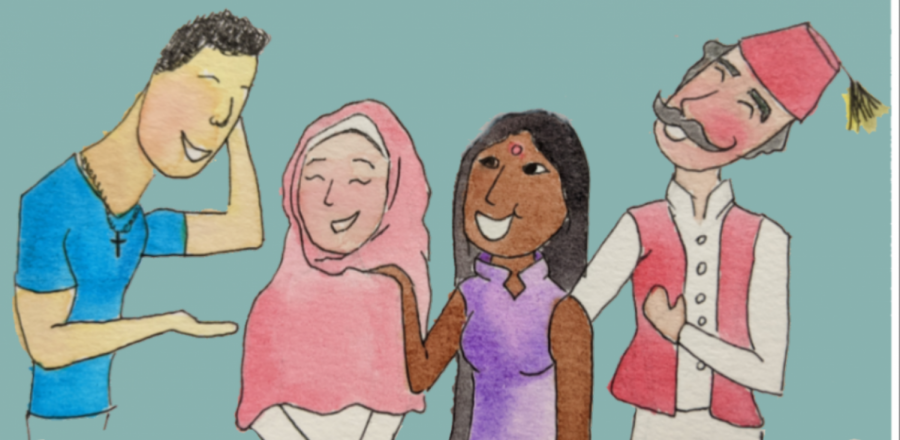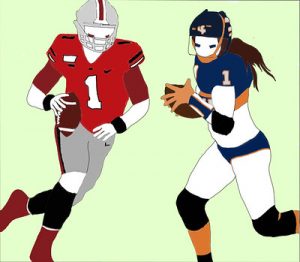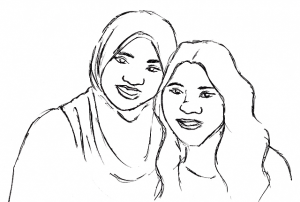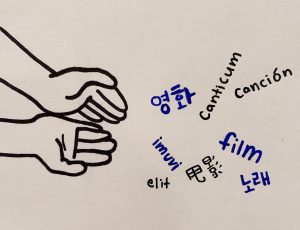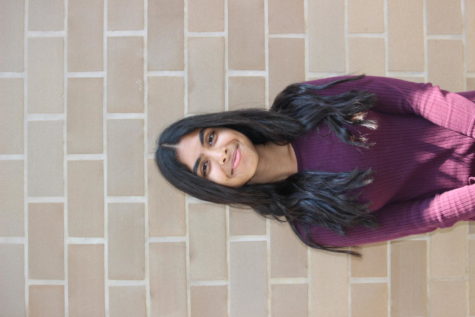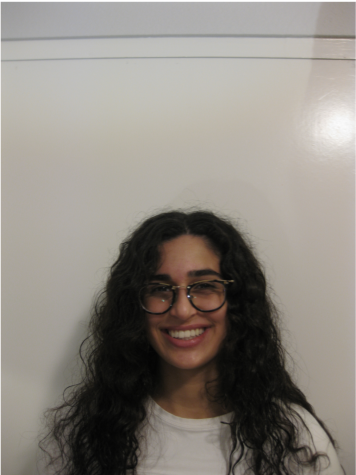Interfaith: People are the problem, not the religion
Interfaith friendships are not only possible but positively contributes to society.
March 30, 2021
Ever since I was a little kid, I was continuously taught by my parents that being Muslim does not make me superior to any other religion, and I need to stay humble and level down.
I remember clearly, it was second grade and I was on the swings waiting for my best friend at the time during recess. Our shared obsession with “Spongebob Squarepants”, the color purple, and ‘Hot Cheetos’ bounded our friendship.
It was a day like no other, I kept staring at the clock shaking my legs anxiously waiting for it to be 11:03 A.M. I still find it weird why our lunchtime was 11:03 A.M., why did we need the extra three minutes of education instead of just going to lunch?
I saw my friend, let’s name her Lilly for the sake of the story. Lilly and I had a ritual of air fiving whenever we saw each other in our class lines. I did the air five, to receive nothing back. She looked at me for a split second and then immediately turned away. I could see her eyes wander trying to avoid my gaze.
That day I didn’t see her during recess time on our normal spot. Line four near the bathroom. We picked this spot because one of us always had to go pee before swinging. I waited for a solid ten minutes before heading down to the swings and feeling my legs nudge against the weird tanbark we had.
This went on for four days until she came up to me one day during recess and said:
“I can’t be friends with you anymore.”
“Wait why, did I do anything wrong?”
“I don’t know, my mom just said I can’t be friends with Muslims.”
That statement hit me. I had tears coming out of my eyes and my face felt hot with the combination of the burning tears and just embarrassment. I ran to the bathroom, which was not far since we met on line four. My eyes continued to sting and ache as I flushed them with water.
Since then I had the idea that something was wrong with me because I was Muslim, and had not attempted to make friends with anyone for the remainder of the school year.
The reason I explained this event in such great detail is because I think about it so often. Because of this, I no longer told people I was Muslim in Elementary School. I always used to think my religion was going to make me lose my friends.
Now looking back, I realized she didn’t know what she was saying was wrong. She didn’t say it, but her mom told her to say it to me. Religion has been something that has made people lose friendships, make judgments over others and even kill. But why? Why do we put so much emphasis on something that’s aiming to make us good human beings?
I still to this day wonder what the mom thought of me, and why I was not a good influence for Lilly.
Not one religion promotes violence, brutality or hatred towards another religion. They all boil down to the same surface of living our lives as good human beings.
The Bible (Book of Christianity) says: Be kind to one another, tenderhearted, forgiving one another, as God in Christ forgave you (Ephesians 4:32).
The Quran (Book of Islam) says: Indeed, Allah enjoins justice, and the doing of good to others; and giving like kindred; and forbids indecency, and manifest evil, and wrongful transgression. He admonished you that you may take heed. (Al Quran 16:91).
According to BBC, Hindus “believe that all living things are sacred because they are a part of god […] being non-violent means showing respect for all life, human, animal and vegetable.”
The Torah (Book of Judaism) says: “You are not to take vengeance, you are not to retain-anger against the sons of your kinspeople—but be-loving to your neighbor (as one) like yourself, I am YHWH!” (Leviticus 19:16-18)
With these being the most practiced religions in the world, we can see they all share the same message “to love everyone”.
So then why do people decide to make religion the factor to break and jeopardize relationships?
In my Sunday School class (essentially a school day for god), our Imam (a scholar of Islam) gave us a talk about treating others with kindness. He drew a tree, and in that tree branched out many families, each family had two kids and a pet. And above each family, he wrote “Muslim” for one of them, “Christian” for another, “Jew” for the third, and then “Hindu” for the last one.
“How are you guys going to treat family number one versus family number two differently?” he asked.
A student raised their hand and said, “Uhh… Give family number two flowers?”
The class became quiet and the Imam simply asked, “Why? Aren’t we all creatures of God? Didn’t God tell us to love everyone like they are our brothers and sisters?”
Yes, one might say that religions have huge differences between one another, in terms of clothing, food, praying rituals and just how to live life. However, treating other people without respect is not one.
Diving deep down, is it any different to consider one human “superior” compared to the other?
“I am a 27-year-old female and was six years old when 9/11 happened. I was old enough to understand that I was an ‘outcast’ my mom wore a hijab, and even as years passed I noticed people give weird looks and stares. I started wearing the hijab around the time I was nine-years-old, I remember I was playing at the park and a mom dragged her child away who was next to me and said ‘it’s not safe here’,” said a Muslim woman, who chose to stay anonymous for her safety.
It astonishes me how many people do not think of the implications they may inflict on others by just one mean comment, one mean stare, and one mean snicker.
No religion tells us to hate on another religion, to backstab them, or to lie to them. This is all human nature. Human nature is the reason we have such a growing divide amongst us and others. Which is often confused with religion, it is always the individual human being and not the whole group.
We need to do better and think before we say or act. The feeling I experienced in second grade is one no one should have to come across in their life. Teach our younger population to respect all, to respect the clothing, prayers, and lifestyles we all have. Humans deserve love.


